Fleurs du Mal Magazine


Or see the index
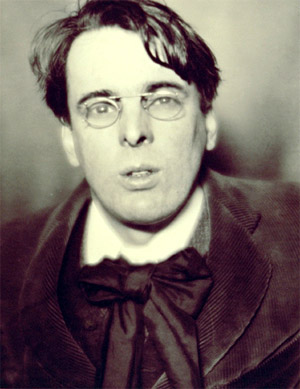
W. B. Yeats
(1865-1939)
For Anne Gregory
“Never shall a young man,
Thrown into despair
By those great honey-coloured
Ramparts at your ear,
Love you for yourself alone
And not your yellow hair.”
“But I can get a hair-dye
And set such colour there,
Brown, or black, or carrot,
That young men in despair
May love me for myself alone
And not my yellow hair.”
“I heard an old religious man
But yesternight declare
That he had found a text to prove
That only God, my dear,
Could love you for yourself alone
And not your yellow hair.”
W. B. Yeats poetry
fleursdumal.nl magazine
More in: Archive Y-Z, Yeats, William Butler
![]()
Poolse dichteres Wislawa Szymborska overleden
2 feb 2012
Gisteren is de Poolse dichteres Wislawa Szymborska op 88-jarige leeftijd overleden. Szymborska won in 1996 de Nobelprijs voor de Literatuur. De juryleden van de Nobelprijs noemden de dichteres de ‘Mozart van de poëzie’.
Volgens haar woordvoerder is de dichteres ‘vredig, in haar slaap, overleden’. Ze woonde in de Zuid-Poolse stad Krakau.
Szymborska, geboren in 1923 in Kornik bij Poznan, studeerde letterkunde en sociologie in Krakau. Haar eerste gedichten publiceerde ze in 1945. De gedichten van Szymborska zijn zowel politiek als speels en geven blijk van een groot gevoel voor humor.
Wislawa Szymborska heeft een klein (niet meer dan 350 gedichten) maar geniaal oeuvre nagelaten.
Een titel hoeft niet
Hier zit ik dan onder een boom
aan de oever van een rivier,
op een zonnige morgen.
Een nietige gebeurtenis
die niet de geschiedenis ingaat.
Het zijn geen veldslagen en pacten
waarvan de motieven worden onderzocht,
of gedenkwaardige tirannenmoorden.
Toch zit ik aan de rivier, dat is een feit.
En nu ik hier ben,
moet ik ergens vandaan zijn gekomen
en daarvoor
op nog vele andere plaatsen zijn geweest,
net zoals veroveraars van landen
voor ze aan boord gingen.
Zelfs een vluchtig ogenblik heeft een rijk verleden,
een vrijdag voor een zaterdag,
een mei die aan juni voorafging.
Het heeft zijn eigen horizons,
even werkelijk als in de veldkijkers van bevelhebbers.
De boom is een populier die hier al jaren wortelt.
De rivier is de Raba die langer stroomt dan vandaag.
Het paadje is niet eergisteren pas
door de struiken gebaand.
Om die wolken te kunnen verjagen,
moet de wind ze eerst hierheen hebben gewaaid.
En hoewel in de buurt niets groots gebeurt,
is de wereld daardoor nog niet armer aan details,
niet minder gefundeerd, niet zwakker gedefinieerd
dan toen volksverhuizingen haar in hun greep hielden.
Niet alleen geheime komplotten worden in stilte gehuld,
niet alleen kroningen gaan van een gevolg van oorzaken vergezeld.
Rond kunnen niet alleen de jubilea van opstanden zijn,
maar ook de omspoelde steentjes aan de waterkant.
Dicht en verstrengeld is het borduursel van de omstandigheden.
De steken van de mier in het gras.
Het gras dat aan de aarde is genaaid.
Het golfpatroon waardoor een twijgje wordt geregen.
Het is zo gegaan dat ik hier ben en kijk.
Boven me fladdert een witte vlinder in de lucht
met vleugeltjes die alleen van hem zijn
en over mijn handen vliegt zijn schaduw,
geen andere, niet zomaar een, alleen de zijne.
Wanneer ik zoiets zie, verlaat me altijd de zekerheid
dat wat belangrijk is
belangrijker is dan wat onbelangrijk is.
Wislawa Szymborska (1923-2012)
(vertaling Gerard Rasch)
fleursdumal.nl magazine
More in: Archive Y-Z, In Memoriam
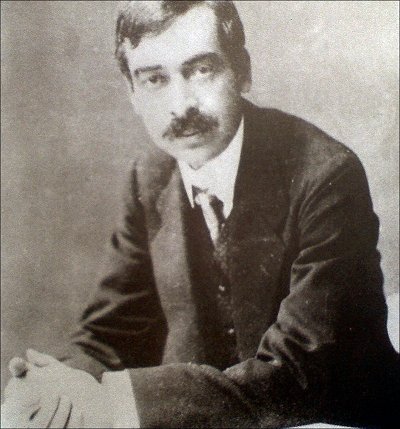
Peyo Kracholov Yavorov
(1878-1914)
Two Lovely Eyes
Two lovely eyes. The spirit of a child.
Two lovely eyes. Sunrays and music.
They don’t want anything and they don’t vow.
My soul is praying,
Child!
My soul is praying…
The passions and the woes
Will cast tomorrow over them
The veil of sin and shame.
The veil of sin and shame
Won’t cast tomorrow over them
The passions and the woes
My soul is praying,
Child!
My soul is praying…
They don’t want anything and they don’t vow…
Two lovely eyes – sunrays and music.
Two lovely eyes. The spirit of a child.
Peyo Kracholov Yavorov poetry
kempis poetry magazine
More in: Archive Y-Z
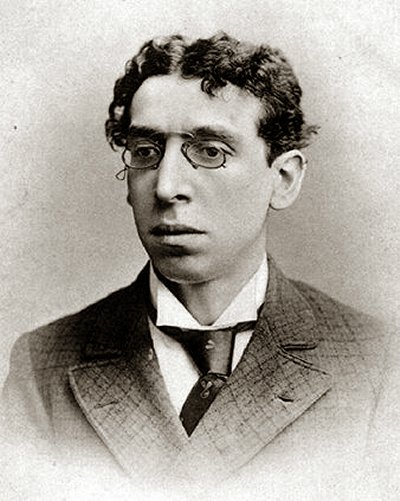
Israel Zangwill
(1864-1926)
Oliver Singing
Oliver’s singing
Comes down to my study,
As I sit in the twilight
Poring the problem
Of this old battered planet,
This universe tragical,
Bloodily twirling.
Nearly all his small span
And through both of his birthdays
This senseless hell-fury,
This horror has hurtled,
Yet he lies in his cot,
Happy, sleepy and singing.
Thus – I muse – at the core –
Of our battered old planet,
Something young and untainted.
Something gay and undaunted,
Like a bud in its whiteness
Like a bird in its joy.
Through the foul-smelling darkness,
Through the muck and the slaughter,
Pushes steadily forward.
Singing.
Israel Zangwill poetry
kempis poetry magazine
More in: Archive Y-Z
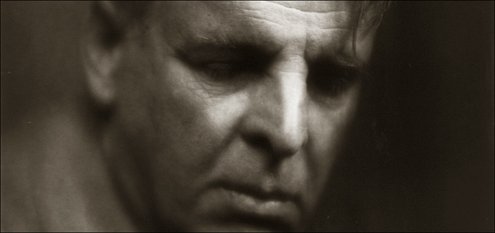
William Butler Yeats
(1865-1939)
Words For Music Perhaps
I – CRAZY JANE AND THE BISHOP
BRING me to the blasted oak
That I, midnight upon the stroke,
(All find safety in the tomb.)
May call down curses on his head
Because of my dear Jack that’s dead.
Coxcomb was the least he said:
The solid man and the coxcomb.
Nor was he Bishop when his ban
Banished Jack the Journeyman,
(All find safety in the tomb.)
Nor so much as parish priest,
Yet he, an old book in his fist,
Cried that we lived like beast and beast:
The solid man and the coxcomb.
The Bishop has a skin, God knows,
Wrinkled like the foot of a goose,
(All find safety in the tomb.)
Nor can he hide in holy black
The heron’s hunch upon his back,
But a birch-tree stood my Jack:
The solid man and the coxcomb.
Jack had my virginity,
And bids me to the oak, for he
(all find safety in the tomb.)
Wanders out into the night
And there is shelter under it,
But should that other come, I spit:
The solid man and the coxcomb.
II – CRAZY JANE REPROVED
I CARE not what the sailors say:
All those dreadful thunder-stones,
All that storm that blots the day
Can but show that Heaven yawns;
Great Europa played the fool
That changed a lover for a bull.
Fol de rol, fol de rol.
To round that shell’s elaborate whorl,
Adorning every secret track
With the delicate mother-of-pearl,
Made the joints of Heaven crack:
So never hang your heart upon
A roaring, ranting journeyman.
Fol de rol, fol de rol.
III – CRAZY JANE ON THE DAY OF JUDGMENT
‘LOVE is all
Unsatisfied
That cannot take the whole
Body and soul’;
And that is what Jane said.
‘Take the sour
If you take me
I can scoff and lour
And scold for an hour.’
‘That’s certainly the case,’ said he.
‘Naked I lay,
The grass my bed;
Naked and hidden away,
That black day’;
And that is what Jane said.
‘What can be shown?
What true love be?
All could be known or shown
If Time were but gone.’
‘That’s certainly the case,’ said he.
IV – CRAZY JANE AND JACK THE JOURNEYMAN
I KNOW, although when looks meet
I tremble to the bone,
The more I leave the door unlatched
The sooner love is gone,
For love is but a skein unwound
Between the dark and dawn.
A lonely ghost the ghost is
That to God shall come;
I — love’s skein upon the ground,
My body in the tomb —
Shall leap into the light lost
In my mother’s womb.
But were I left to lie alone
In an empty bed,
The skein so bound us ghost to ghost
When he turned his head
passing on the road that night,
Mine must walk when dead.
V – CRAZY JANE ON GOD
THAT lover of a night
Came when he would,
Went in the dawning light
Whether I would or no;
Men come, men go;
All things remain in God.
Banners choke the sky;
Men-at-arms tread;
Armoured horses neigh
In the narrow pass:
All things remain in God.
Before their eyes a house
That from childhood stood
Uninhabited, ruinous,
Suddenly lit up
From door to top:
All things remain in God.
I had wild Jack for a lover;
Though like a road
That men pass over
My body makes no moan
But sings on:
All things remain in God.
VI – CRAZY JANE TALKS WITH THE BISHOP
I MET the Bishop on the road
And much said he and I.
‘Those breasts are flat and fallen now,
Those veins must soon be dry;
Live in a heavenly mansion,
Not in some foul sty.’
‘Fair and foul are near of kin,
And fair needs foul,’ I cried.
‘My friends are gone, but that’s a truth
Nor grave nor bed denied,
Learned in bodily lowliness
And in the heart’s pride.
‘A woman can be proud and stiff
When on love intent;
But Love has pitched his mansion in
The place of excrement;
For nothing can be sole or whole
That has not been rent.’
VII – CRAZY JANE GROWN OLD LOOKS AT THE DANCERS
I FOUND that ivory image there
Dancing with her chosen youth,
But when he wound her coal-black hair
As though to strangle her, no scream
Or bodily movement did I dare,
Eyes under eyelids did so gleam;
Love is like the lion’s tooth.
When She, and though some said she played
I said that she had danced heart’s truth,
Drew a knife to strike him dead,
I could but leave him to his fate;
For no matter what is said
They had all that had their hate;
Love is like the lion’s tooth.
Did he die or did she die?
Seemed to die or died they both?
God be with the times when I
Cared not a thraneen for what chanced
So that I had the limbs to try
Such a dance as there was danced —
Love is like the lion’s tooth.
VIII – GIRL’S SONG
I WENT out alone
To sing a song or two,
My fancy on a man,
And you know who.
Another came in sight
That on a stick relied
To hold himself upright;
I sat and cried.
And that was all my song —
When everything is told,
Saw I an old man young
Or young man old?
IX – YOUNG MAN’S SONG
‘SHE will change,’ I cried.
‘Into a withered crone.’
The heart in my side,
That so still had lain,
In noble rage replied
And beat upon the bone:
‘Uplift those eyes and throw
Those glances unafraid:
She would as bravely show
Did all the fabric fade;
No withered crone I saw
Before the world was made.’
Abashed by that report,
For the heart cannot lie,
I knelt in the dirt.
And all shall bend the knee
To my offended heart
Until it pardon me.
X – HER ANXIETY
EARTH in beauty dressed
Awaits returning spring.
All true love must die,
Alter at the best
Into some lesser thing.
Prove that I lie.
Such body lovers have,
Such exacting breath,
That they touch or sigh.
Every touch they give,
Love is nearer death.
Prove that I lie.
XI – HIS CONFIDENCE
UNDYING love to buy
I wrote upon
The corners of this eye
All wrongs done.
What payment were enough
For undying love?
I broke my heart in two
So hard I struck.
What matter? for I know
That out of rock,
Out of a desolate source,
Love leaps upon its course.
XII – LOVE’S LONELINESS
OLD fathers, great-grandfathers,
Rise as kindred should.
If ever lover’s loneliness
Came where you stood,
Pray that Heaven protect us
That protect your blood.
The mountain throws a shadow,
Thin is the moon’s horn;
What did we remember
Under the ragged thorn?
Dread has followed longing,
And our hearts are torn.
XIII – HER DREAM
I DREAMED as in my bed I lay,
All night’s fathomless wisdom come,
That I had shorn my locks away
And laid them on Love’s lettered tomb:
But something bore them out of sight
In a great tumult of the air,
And after nailed upon the night
Berenice’s burning hair.
XIV – HIS BARGAIN
WHO talks of Plato’s spindle;
What set it whirling round?
Eternity may dwindle,
Time is unwound,
Dan and Jerry Lout
Change their loves about.
However they may take it,
Before the thread began
I made, and may not break it
When the last thread has run,
A bargain with that hair
And all the windings there.
XV – THREE THINGS
‘O CRUEL Death, give three things back,’
Sang a bone upon the shore;
‘A child found all a child can lack,
Whether of pleasure or of rest,
Upon the abundance of my breast’:
A bone wave-whitened and dried in the wind.
‘Three dear things that women know,’
Sang a bhone upon the shore;
‘A man if I but held him so
When my body was alive
Found all the pleasure that life gave’:
A bone wave-whitened and dried in the wind.
‘The third thing that I think of yet,’
Sang a bone upon the shore,
‘Is that morning when I met
Face to face my rightful man
And did after stretch and yawn’:
A bone wave-whitened and dried in the wind.
XVI – LULLABY
BELOVED, may your sleep be sound
That have found it where you fed.
What were all the world’s alarms
To mighty paris when he found
Sleep upon a golden bed
That first dawn in Helen’s arms?
Sleep, beloved, such a sleep
As did that wild Tristram know
When, the potion’s work being done,
Roe could run or doe could leap
Under oak and beechen bough,
Roe could leap or doe could run;
Such a sleep and sound as fell
Upon Eurotas’ grassy bank
When the holy bird, that there
Accomplished his predestined will,
From the limbs of Leda sank
But not from her protecting care.
XVII – AFTER LONG SILENCE
SPEECH after long silence; it is right,
All other lovers being estranged or dead,
Unfriendly lamplight hid under its shade,
The curtains drawn upon unfriendly night,
That we descant and yet again descant
Upon the supreme theme of Art and Song:
Bodily decrepitude is wisdom; young
We loved each other and were ignorant.
XVIII – MAD AS THE MIST AND SNOW
BOLT and bar the shutter,
For the foul winds blow:
Our minds are at their best this night,
And I seem to know
That everything outside us is
Mad as the mist and snow.
Horace there by Homer stands,
Plato stands below,
And here is Tully’s open page.
How many years ago
Were you and I unlettered lads
Mad as the mist and snow?
You ask what makes me sigh, old friend,
What makes me shudder so?
I shudder and I sigh to think
That even Cicero
And many-minded Homer were
Mad as the mist and snow.
XIX – THOSE DANCING DAYS ARE GONE
COME, let me sing into your ear;
Those dancing days are gone,
All that silk and satin gear;
Crouch upon a stone,
Wrapping that foul body up
In as foul a rag:
I carry the sun in a golden cup.
The moon in a silver bag.
Curse as you may I sing it through;
What matter if the knave
That the most could pleasure you,
The children that he gave,
Are somewhere sleeping like a top
Under a marble flag?
I carry the sun in a golden cup.
The moon in a silver bag.
I thought it out this very day.
Noon upon the clock,
A man may put pretence away
Who leans upon a stick,
May sing, and sing until he drop,
Whether to maid or hag:
I carry the sun in a golden cup,
The moon in a silver bag.
XX – ‘I AM OF IRELAND’
AM of Ireland,
And the Holy Land of Ireland,
And time runs on,’ cried she.
‘Come out of charity,
Come dance with me in Ireland.’
One man, one man alone
In that outlandish gear,
One solitary man
Of all that rambled there
Had turned his stately head.
That is a long way off,
And time runs on,’ he said,
‘And the night grows rough.’
I am of Ireland,
And the Holy Land of Ireland,
And time runs on,’ cried she.
‘Come out of charity
And dance with me in Ireland.’
The fiddlers are all thumbs,
Or the fiddle-string accursed,
The drums and the kettledrums
And the trumpets all are burst,
And the trombone,’ cried he,
‘The trumpet and trombone,’
And cocked a malicious eye,
‘But time runs on, runs on.’
I am of Ireland,
And the Holy Land of Ireland,
And time runs on,’ cried she.
‘Come out of charity
And dance with me in Ireland.’
XXI – THE DANCER AT CRUACHAN AND CRO-PATRICK
I, PROCLAIMING that there is
Among birds or beasts or men
One that is perfect or at peace.
Danced on Cruachan’s windy plain,
Upon Cro-patrick sang aloud;
All that could run or leap or swim
Whether in wood, water or cloud,
Acclaiming, proclaiming, declaiming Him.
XXII – TOM THE LUNATIC
SANG old Tom the lunatic
That sleeps under the canopy:
‘What change has put my thoughts astray
And eyes that had s-o keen a sight?
What has turned to smoking wick
Nature’s pure unchanging light?
‘Huddon and Duddon and Daniel O’Leary.
Holy Joe, the beggar-man,
Wenching, drinking, still remain
Or sing a penance on the road;
Something made these eyeballs weary
That blinked and saw them in a shroud.
‘Whatever stands in field or flood,
Bird, beast, fish or man,
Mare or stallion, cock or hen,
Stands in God’s unchanging eye
In all the vigour of its blood;
In that faith I live or die.’
XXIII – TOM AT CRUACHAN
ON Cruachan’s plain slept he
That must sing in a rhyme
What most could shake his soul:
‘The stallion Eternit
Mounted the mare of Time,
‘Gat the foal of the world.’
XXIV – OLD TOM AGAIN
THINGS out of perfection sail,
And all their swelling canvas wear,
Nor shall the self-begotten fail
Though fantastic men suppose
Building-yard and stormy shore,
Winding-sheet and swaddling — clothes.
XXV – THE DELPHIC ORACLE UPON PLOTINUS
BEHOLD that great Plotinus swim,
Buffeted by such seas;
Bland Rhadamanthus beckons him,
But the Golden Race looks dim,
Salt blood blocks his eyes.
Scattered on the level grass
Or winding through the grove
plato there and Minos pass,
There stately Pythagoras
And all the choir of Love

W.B. Yeats poetry
fleursdumal.nl magazine
More in: Archive Y-Z, Yeats, William Butler
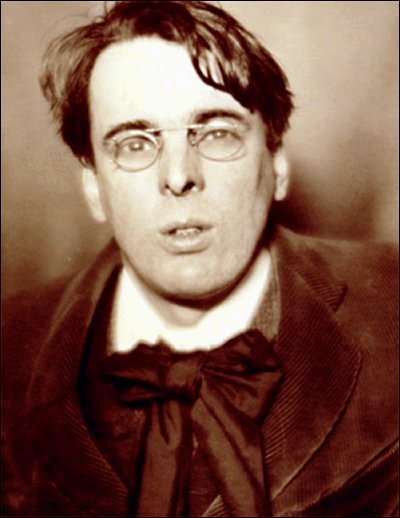
William Butler Yeats
(1865-1939)
5 poems
Alternative song for the severed head
in “The King of the Great Clock Tower”
Saddle and ride, I heard a man say,
Out of Ben Bulben and Knocknarea,
What says the Clock in the Great Clock Tower?
All those tragic characters ride
But turn from Rosses’ crawling tide,
The meet’s upon the mountain-side.
A slow low note and an iron bell.
What brought them there so far from their home.
Cuchulain that fought night long with the foam,
What says the Clock in the Great Clock Tower?
Niamh that rode on it; lad and lass
That sat so still and played at the chess?
What but heroic wantonness?
A slow low note and an iron bell.
Aleel, his Countess; Hanrahan
That seemed but a wild wenching man;
What says the Clock in the Great Clock Tower?
And all alone comes riding there
The King that could make his people stare,
Because he had feathers instead of hair.
A slow low note and an iron bell.
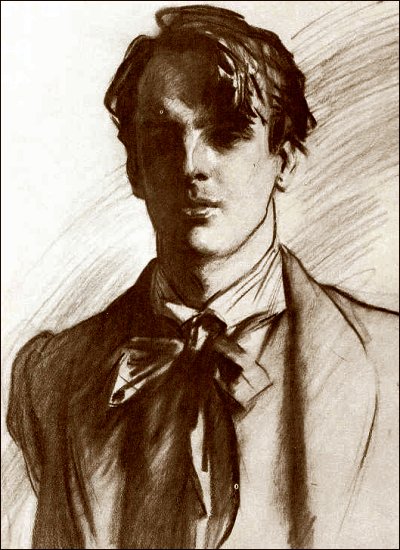
Broken Dreams
There is grey in your hair.
Young men no longer suddenly catch their breath
When you are passing;
But maybe some old gaffer mutters a blessing
Because it was your prayer
Recovered him upon the bed of death.
For your sole sake — that all heart’s ache have known,
And given to others all heart’s ache,
From meagre girlhood’s putting on
Burdensome beauty — for your sole sake
Heaven has put away the stroke of her doom,
So great her portion in that peace you make
By merely walking in a room.
Your beauty can but leave among us
Vague memories, nothing but memories.
A young man when the old men are done talking
Will say to an old man, “Tell me of that lady
The poet stubborn with his passion sang us
When age might well have chilled his blood.”
Vague memories, nothing but memories,
But in the grave all, all, shall be renewed.
The certainty that I shall see that lady
Leaning or standing or walking
In the first loveliness of womanhood,
And with the fervour of my youthful eyes,
Has set me muttering like a fool.
You are more beautiful than any one,
And yet your body had a flaw:
Your small hands were not beautiful,
And I am afraid that you will run
And paddle to the wrist
In that mysterious, always brimming lake
Where those What have obeyed the holy law
paddle and are perfect. Leave unchanged
The hands that I have kissed,
For old sake’s sake.
The last stroke of midnight dies.
All day in the one chair
From dream to dream and rhyme to rhyme I have ranged
In rambling talk with an image of air:
Vague memories, nothing but memories.
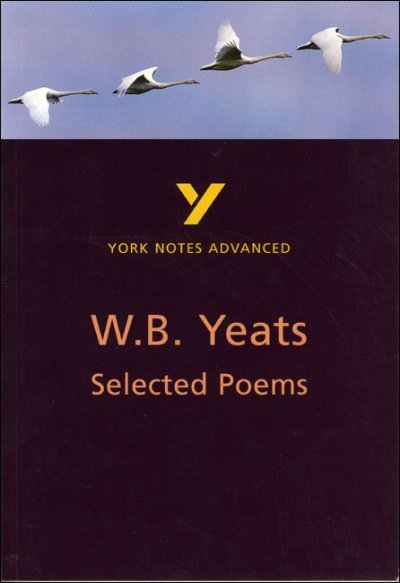
The Old Stone Cross
A statesman is an easy man,
He tells his lies by rote;
A journalist makes up his lies
And takes you by the throat;
So stay at home and drink your beer
And let the neighbours vote,
Said the man in the golden breastplate
Under the old stone Cross.
Because this age and the next age
Engender in the ditch,
No man can know a happy man
From any passing wretch;
If Folly link with Elegance
No man knows which is which,
Said the man in the golden breastplate
Under the old stone Cross.
But actors lacking music
Do most excite my spleen,
They say it is more human
To shuffle, grunt and groan,
Not knowing what unearthly stuff
Rounds a mighty scene,
Said the man in the golden breastplate
Under the old stone Cross.
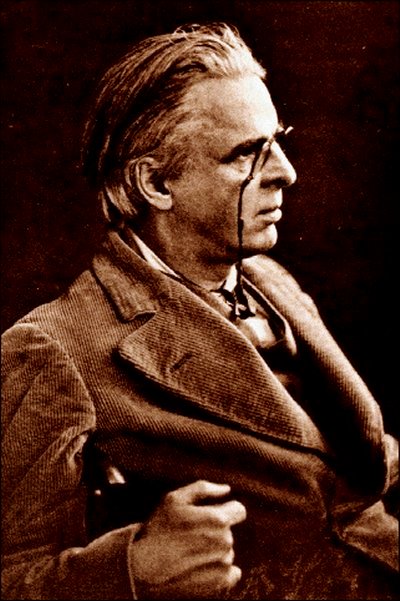
The Mother of God
The threefold terror of love; a fallen flare
Through the hollow of an ear;
Wings beating about the room;
The terror of all terrors that I bore
The Heavens in my womb.
Had I not found content among the shows
Every common woman knows,
Chimney corner, garden walk,
Or rocky cistern where we tread the clothes
And gather all the talk?
What is this flesh I purchased with my pains,
This fallen star my milk sustains,
This love that makes my heart’s blood stop
Or strikes a Sudden chill into my bones
And bids my hair stand up?
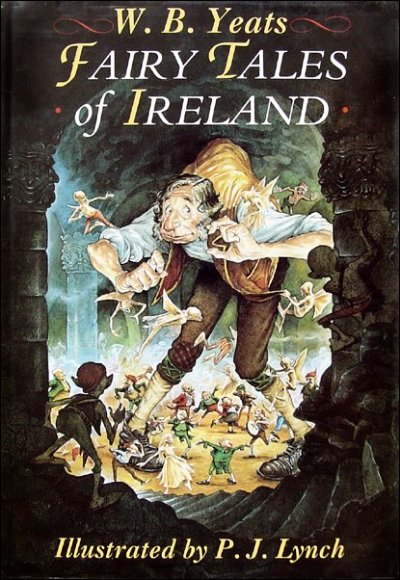
Presences
This night has been so strange that it seemed
As if the hair stood up on my head.
From going-down of the sun I have dreamed
That women laughing, or timid or wild,
In rustle of lace or silken stuff,
Climbed up my creaking stair. They had read
All I had rhymed of that monstrous thing
Returned and yet unrequited love.
They stood in the door and stood between
My great wood lectern and the fire
Till I could hear their hearts beating:
One is a harlot, and one a child
That never looked upon man with desire.
And one, it may be, a queen.
W.B. Yeats: five poems
fleursdumal.nl magazine
More in: Archive Y-Z, Yeats, William Butler
Thank you for reading Fleurs du Mal - magazine for art & literature